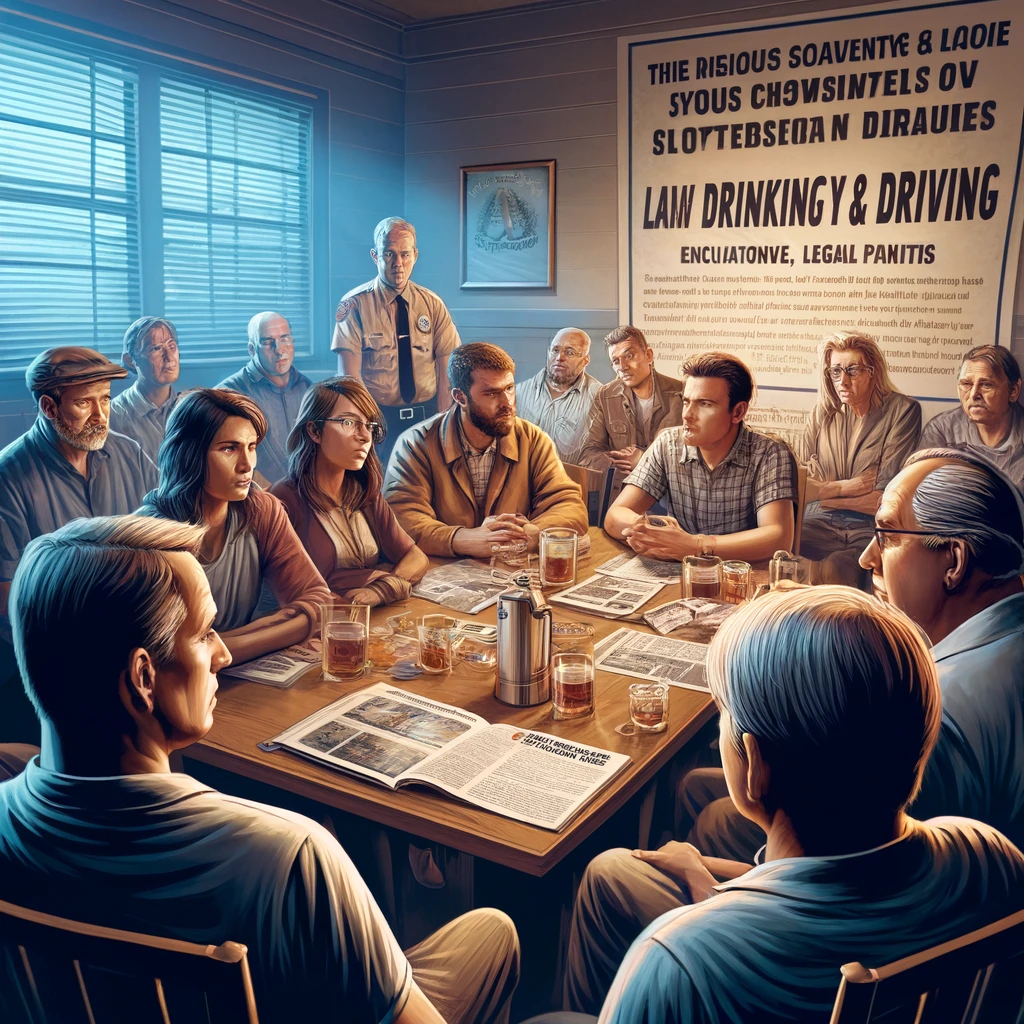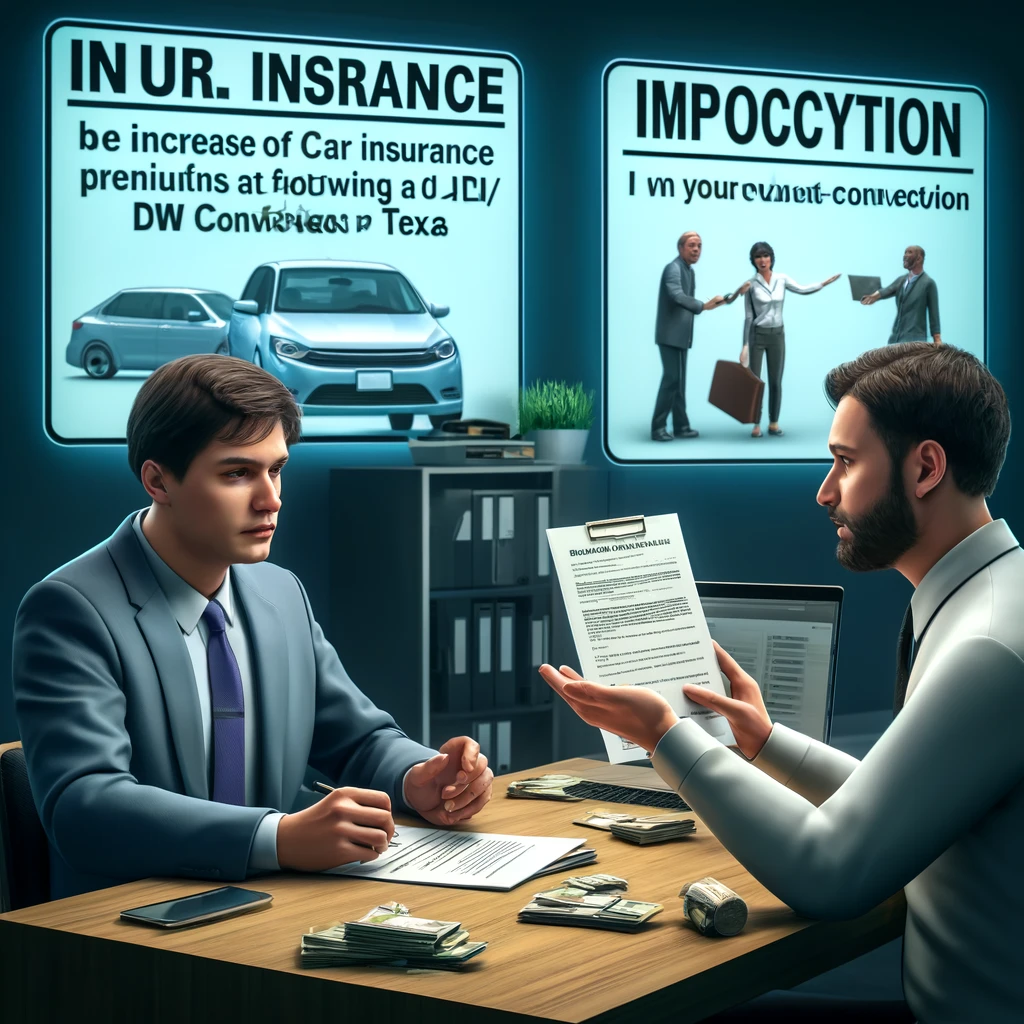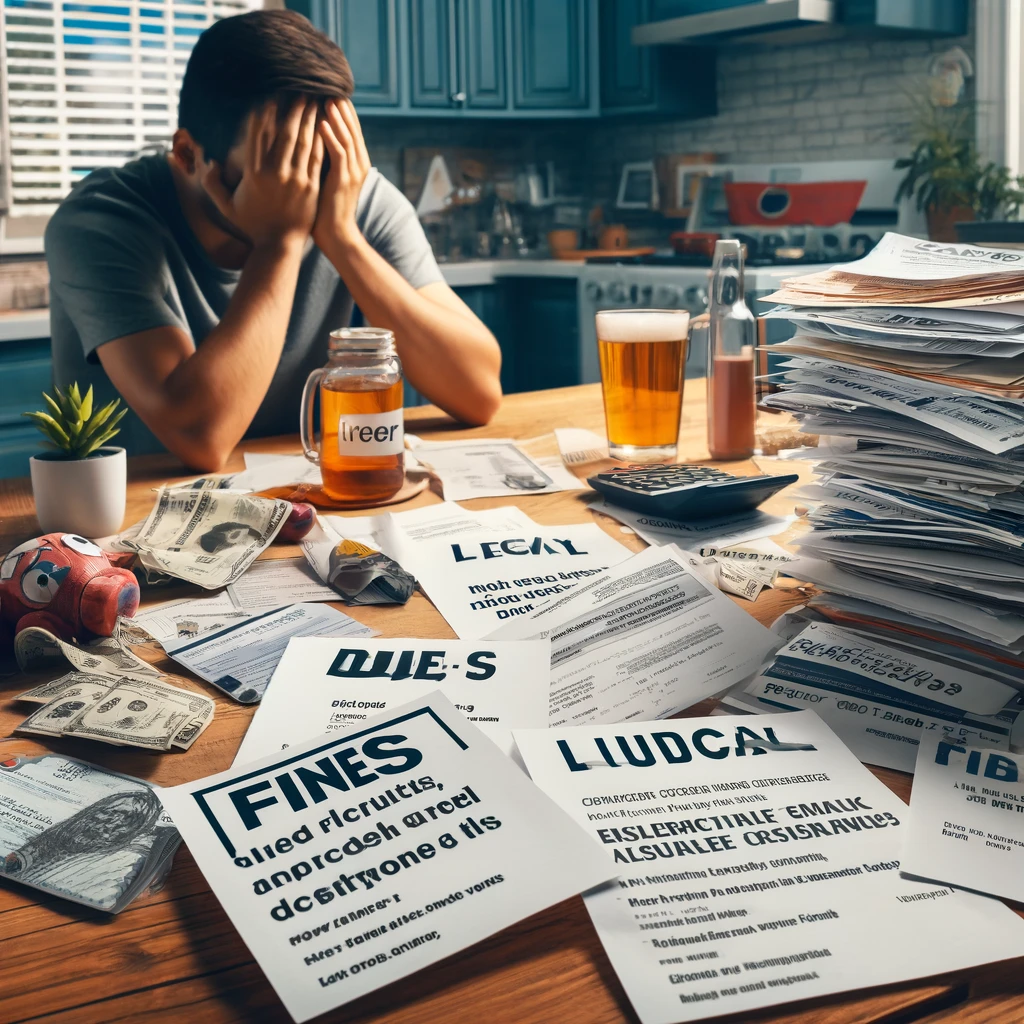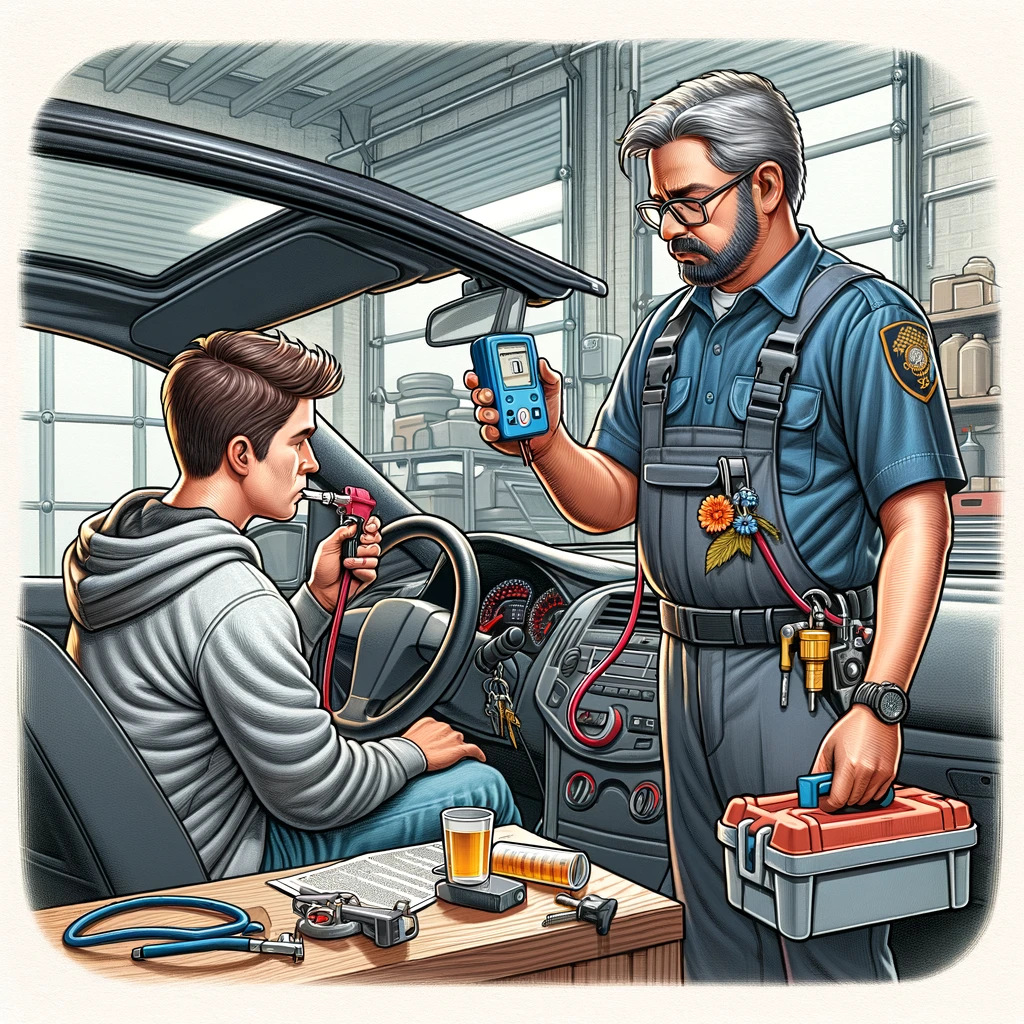
The consequences of drinking and driving in Texas are severe, designed to deter such dangerous behavior on the roads. This in-depth analysis sheds light on the legal landscape surrounding DUI/DWI penalties in Texas, offering crucial insights into how the state combats this issue.
Imagine cruising down a Texas highway, the wind in your hair, and your favorite tune on the radio. Life’s good, right? Until those flashing lights in the rearview mirror turn your dream drive into a potential nightmare. Welcome to the not-so-fun part of adulting in Texas: navigating the tricky waters of DUI/DWI laws.
Why should you care about the consequences of drinking and driving in Texas?
Well, because even a single misstep can lead to a tangled mess of legal woes, hefty fines, and even a stint behind bars. Not exactly the adventure you had in mind, huh?
But fear not, dear reader! We’re diving deep into the heart of Texas law to bring you everything you need to know about drinking and driving penalties. From first-time oopsies to “Oh no, not again!” moments, we’ve got the scoop.
Short answer to the consequences of drinking and driving in Texas?
Yes, the penalties are tough, but knowledge is your best defense. Keep reading to discover how to steer clear of trouble, or navigate your way out if you’ve already dipped a toe in these murky legal waters. Trust us, it’s going to be an enlightening ride!

Understanding DUI/DWI Laws in Texas
Texas enforces strict DUI/DWI laws to ensure the safety of all road users. The state delineates clear blood alcohol content (BAC) limits: 0.08% for standard drivers, 0.04% for commercial drivers, and a zero-tolerance policy for drivers under 21. These limits are foundational to Texas’s efforts to prevent alcohol-related accidents.
Navigating First-Time Offender Penalties
First-time DUI/DWI offenders in Texas face a daunting array of penalties. Fines can reach up to $2,000, license suspension may last for a year, and jail time can extend to six months. These stringent penalties underscore Texas’s no-nonsense approach to first-time offenses.
| Penalty Type | Details |
| Fines | Up to $2,000 |
| License Suspension | Up to 1 year |
| Jail Time | 3 days to 6 months |

The Escalation of Repeat Offense Penalties
Texas intensifies penalties for repeat DUI/DWI offenders to curb recidivism. With each subsequent offense, individuals face increased fines, longer jail sentences, and extended license suspension periods. By the third offense, a felony charge is possible, reflecting the serious nature of repeated DUI/DWI violations.
Addressing Underage Drinking and Driving
The zero-tolerance stance for underage drivers caught drinking and driving in Texas results in immediate license suspension, fines, and mandatory educational programs. This policy highlights the state’s commitment to educating young drivers about the risks of alcohol consumption and driving.

Increased Penalties for DUI with a Minor Passenger
Driving under the influence with a minor passenger attracts additional penalties in Texas, emphasizing the gravity of endangering young lives. Offenders may face felony charges, highlighting the increased responsibility drivers have when minors are present.
The Role of Alcohol Education Programs
Mandatory alcohol education, intervention, or treatment programs are a cornerstone of Texas’s DUI/DWI penalties. These programs aim to address the underlying issues contributing to the offense, fostering a rehabilitative approach to preventing future incidents.
The Impact of License Suspension and Revocation
The suspension or revocation of a driver’s license is a common penalty for DUI/DWI offenses in Texas. The process for reinstating driving privileges involves meeting specific requirements, underscoring the legal implications of DUI/DWI offenses on an individual’s ability to drive.

Obtaining an Occupational License
Texas may grant occupational licenses to individuals needing to drive for work during a suspension period. This provision underscores the balance Texas seeks between enforcing penalties and recognizing the necessity of driving for employment.
Legalities of DUI/DWI Checkpoints
Sobriety checkpoints in Texas are a key tool in detecting DUI/DWI offenses. These checkpoints are legally sanctioned and play a critical role in the state’s preventative strategies, offering a tangible example of law enforcement’s role in combating drinking and driving.
Consequences on Car Insurance and Employment
A DUI/DWI conviction in Texas can have lasting effects on car insurance premiums and employment opportunities. Individuals may face higher insurance rates and challenges in securing jobs that require driving, reflecting the broader social and economic impacts of such convictions.
Clearing a DUI/DWI Record through Expunction and Non-Disclosure
Texas law provides mechanisms for expunging or sealing DUI/DWI records under certain conditions. These legal processes allow eligible individuals to move past their mistakes, highlighting the state’s recognition of the importance of rehabilitation and second chances.
The Importance of Legal Representation in DUI/DWI Cases
Effective legal representation is crucial in navigating the complexities of DUI/DWI cases in Texas. Skilled attorneys can employ defense strategies that may significantly affect the outcome of a case, illustrating the essential role of legal expertise in these situations.

Understanding the Financial Costs of a DUI/DWI
The financial burden of a DUI/DWI conviction extends beyond fines to include legal fees, increased insurance rates, and potential job loss. This comprehensive financial impact serves as a deterrent, emphasizing the costly consequences of drinking and driving.
Community Service and Probation: Alternative Penalties
Community service and probation are alternative penalties that Texas may impose for DUI/DWI convictions. These options focus on rehabilitation, offering offenders the opportunity to contribute positively to their communities while adhering to the law.
Ignition Interlock Devices: A Preventative Measure
Ignition interlock devices are a key preventative measure for certain DUI/DWI offenders in Texas. By requiring the driver to pass a breathalyzer test before operating a vehicle, these devices play a crucial role in preventing repeat offenses.

In Summary of the consequences of drinking and driving in Texas
The penalties for drinking and driving in Texas are comprehensive and designed to deter, punish, and rehabilitate offenders. Through a multifaceted approach that includes legal consequences, educational programs, and technological interventions, Texas is committed to reducing the incidence of DUI/DWI and enhancing public safety. Understanding these penalties and the legal framework surrounding them is essential for anyone navigating the implications of a DUI/DWI charge in Texas, emphasizing the importance of informed decisions and responsible behavior on the road.
And there you have it, folks
The winding road of DUI/DWI laws in Texas, with all its twists, turns, and cautionary tales. We’ve cruised past the stark billboards of penalties, navigated the dense forest of legal jargon, and even dodged a few potholes of potential financial ruin along the way.
So, what’s the short answer tothe consequences of drinking and driving in Texas?
Steering clear of drinking and driving in Texas is your best bet. But if you ever find yourself caught in the headlights of a DUI/DWI situation, remember: knowledge is your GPS out of there.
Consider this article your trusty co-pilot, offering guidance and insight on a journey we hope you’ll never have to take. But if you do, we’ve got your back. Drive safe, Texas adventurers, and keep this guide handy. After all, it’s always better to be the one telling the story than becoming one.

Other Related Articles:
- DUI and DWI: The Alcohol Marijuana Dilemma
- Navigating DWI: Texas Laws on Marijuana and Alcohol
- Navigating the Maze of DUI Laws and Consequences
- Texas’s Zero Tolerance Laws for Underage Drinking and Driving
- Understanding DWI Laws in Texas: A Closer Look
- Pouring Responsibility: Understanding the Texas Dram Shop Act
- DUI Checkpoints: Your Rights and Your Options
- Back to the Basics: Don’t Drink & Drive!
- Decoding DUI Regulations in Texas
- Texas Legal Perspectives on DUI
Frequently Asked Questions:
Punishments can include fines, license suspension, and jail time, depending on the severity and repeat offenses.
Consequences range from fines and jail time to increased insurance rates, employment issues, and license suspension.
Jail time varies from 3 days to over a year for first-time offenders, with longer sentences for repeat offenses.
Texas has a zero tolerance for drivers under 21. The legal BAC limit for drivers 21 and over is 0.08%.

